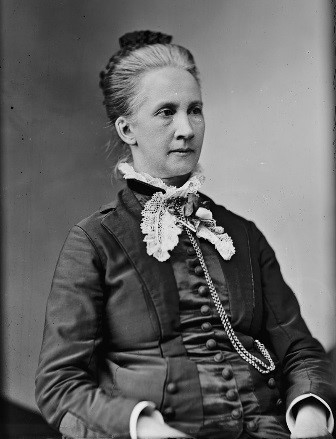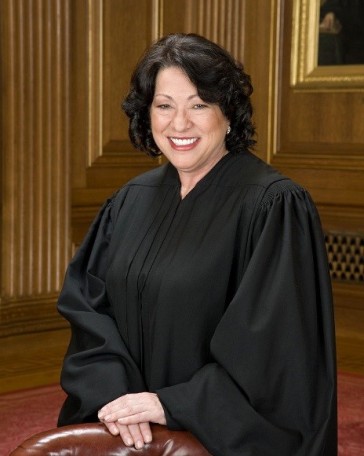Today’s match-up is between Belva Ann Lockwood, the first woman to be admitted to practice in front of the U.S. Supreme Court and to run for President of the United States and Sonia Sotomayor, first Latina Justice of the U.S. Supreme Court. Which woman inspires you the most? You can vote by participating in our daily Twitter or Facebook poll, or by casting a vote at the Circulation Desk. Happy voting!
Belva Ann Lockwood-“If nations could only depend upon fair and impartial judgments in a world court of law, they would abandon the senseless, savage practice of war.”

At 14 years old, Belva was working as a school teacher. After getting married and being widowed in 1853, Belva decided she wanted a higher education to support herself and her daughter. Her decision was not popular, as it was extremely unusual for a widow to seek a higher education in those times. Belva remained determined despite her adversaries and by 1857 graduated from college with honors. She then became headmistress of a prestigious school. During these times, she became interested in the study of law. For the next few years, she would continue her studies while also working and realized that regardless of her position, she was often paid less and respected less than her male peers. Belva became active in women’s rights and opened a co-educational school for both genders. She was rejected from the Colombian Law School on the basis of her gender. Despite admittance to what is now the George Washington University Law School and completion of the coursework, she and other women at the school were denied diplomas. Belva wrote a directly to the current President of the United States asking for justice and within a week received her diploma. However, Belva’s struggles in the legal profession continued due to her remarriage and her gender. She struggled to keep up a practice and be accepted by other professionals. Despite support from some members of the profession, it took two applications before Belva became the first woman to be admitted to practice and argue in front of the United States Supreme Court. She eventually drafted legislation to promote women’s rights as individuals and continued to be active in the women’s rights movement. She ran for President of the United States in 1884 and 1888 for a third party. She eventually became a well-respected writer on the subject of women’s suffrage and property law reform.
Sonia Sotomayor-“It is important for all of us to appreciate where we come from and how that history has really shaped us in ways we might not understand.”

Inspired by fictional female detective Nancy Drew but limited by Type One diabetes from young age, Justice Sotomayor decided to go into the legal profession at age 10 after only being fully fluent in English for a single year. After entering Princeton and then Yale on scholarships, she spent the majority of her career, both academically and professionally, fighting for rice, gender and ethnic equality and education. She was an active member of many boards and agencies, allowing Justice Sotomayor to be extremely influential in reforms of all kind. Justice Sotomayor was nominated to the Supreme Court in 2009 and since has become a voice for the rights of defendants and criminal justice reform. She is still serving on the Supreme Court.
Disclaimer: This is a friendly competition that is meant to increase awareness about some amazing women. The match ups were determined by a random outcome generator, and the winner will be determined based solely on the votes submitted by the participants. We are in no way seeking to pit one woman against each other in any inappropriate way, because each woman is inspiring in her own right.
